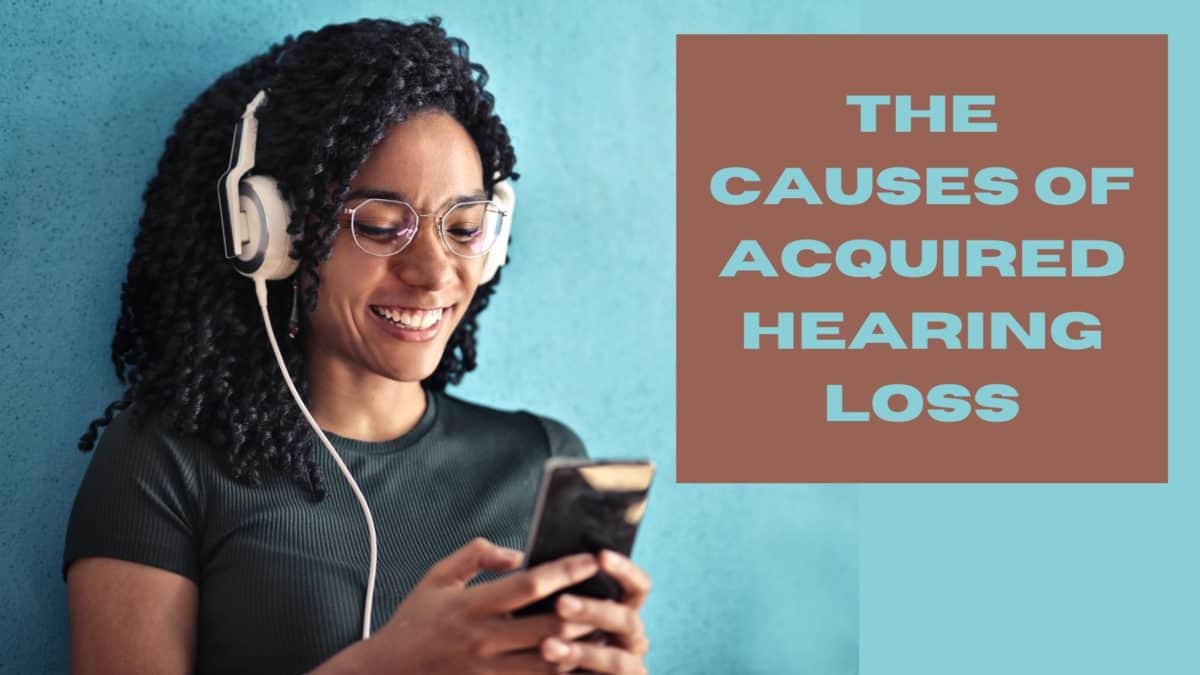- Volunteering for Hearing Health Causes - May 27, 2025
- Questions to Ask During Your Hearing Health Appointment - May 16, 2025
- Exploring Alternative Therapies for Hearing Loss - May 6, 2025
Hearing loss is a widespread health problem and affects 38 million Americans. Researchers are working hard to figure out what causes us to lose our hearing and avoid and manage the disease.
We know so far that the causes of hearing loss are either congenital or acquired.
Congenital hearing loss occurs at the time of birth, or rather shortly after birth. It can be due to genetic or non-genetic causes.
An acquired hearing loss comes from something that occurs after birth. According to the latest research, the general causes of acquired hearing loss come from three sources.
Let’s take a look at each in turn.
Health complications
The most common medical cause of hearing loss is ear infections. Also known as acute otitis media, middle ear diseases are common among young children, causing irritation, pain, and inflammation of the inner ear. If too much fluid builds up in the space behind the eardrum, this may obstruct the functioning of the eardrum and middle ear bones, which causes hearing issues.
Younger children are more likely to develop middle ear infections because their immune systems are not as mature, making it difficult for them to fend off respiratory diseases.
Additional medical causes of adult hearing loss include:
Ménière’s disease: This is a problem with the inner ear. It is not clear what causes Ménière’s disease. It typically starts in people aged between 30 and 50 years. A person with this condition will have sensorineural hearing loss. Dizziness and tinnitus are also common. The hearing loss comes and goes, but some damage becomes permanent over time.
An autoimmune disease of the inner ear: An autoimmune disorder attacks the body itself. The form of hearing loss happens quickly. When you unexpectedly lose your hearing, you should see a doctor as soon as possible. Medical treatment can aid in minimizing hearing loss.
Side effects of medications
Certain medications are classified as ototoxic in specific cases (damaging your ears). According to the American Speech-Language-Hearing Association, more than 200 such drugs are now on the market.
While it is unlikely that they would cause hearing loss, it is essential to be aware of them if the unexpected occurs. If you’re taking medication and experiencing hearing loss, tinnitus, or vertigo, talk to your doctor about your choices.
The following is a list of the most well-known medicines that induce hearing loss:
- NSAIDs such as naproxen and ibuprofen.
- Aspirin in large amounts.
- Quinine
- Loop diuretics
- Antibiotics are used to treat kidney diseases.
Remember that these drugs are not certain to damage your hearing. However, to remain vigilant about your hearing health, pay attention to how you’re hearing and whether you notice a change in your hearing.
Noise-induced hearing loss
Noise-induced hearing loss can occur in individuals of any age. Depending on the source and intensity of the noise, it may develop suddenly or slowly.
- Suddenly: When a sudden, deafening sound, such as an explosion, a gunshot, or a firecracker near the ear, damages either ear structure and causes immediate, dangerous, and sometimes permanent hearing loss. Sometimes, such a condition requires urgent medical attention.
- Slowly: This is a more common and slower cause of noise-induced hearing loss that develops cumulatively over many years. Repeated exposure to these sounds can wear down delicate hair cells over time, meaning that they fail to function as they should.
Understanding how hearing loss is acquired makes it easier for you to prevent it from happening in the first place. If you think you have hearing loss, contact us today. We will check your hearing and help you find the right ways to treat it so that you can continue those all-important connections to your loved ones. If you are ready to address your hearing health, we’re here to help! Contact us today to learn more.

